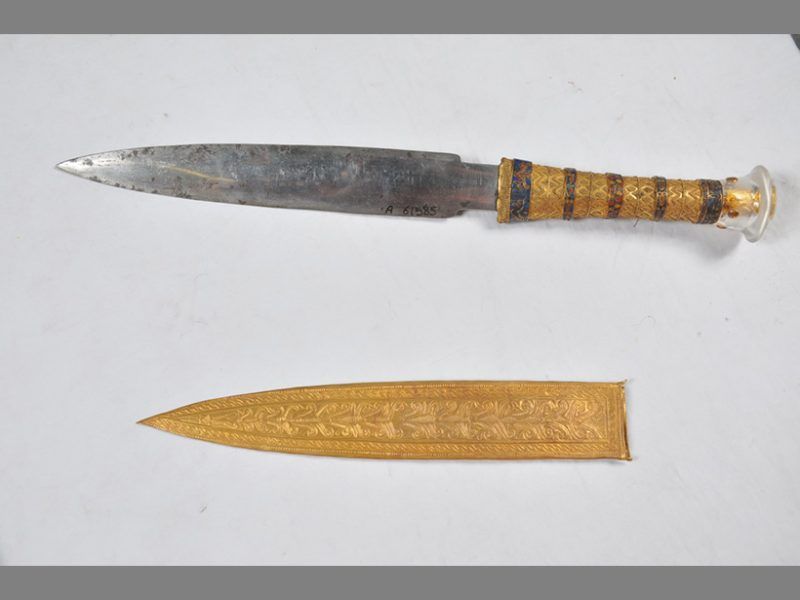King Tut’s Dagger Was Made From a Meteorite
X-ray spectroscopy lays a decades-long metal mystery to rest
/https://tf-cmsv2-smithsonianmag-media.s3.amazonaws.com/filer/4b/99/4b99af76-2e3b-4ff1-a342-ac435a4b8913/tut-ausstellung_ffm_2012_47_7117819557.jpg)
When archaeologists discovered Tutankhamun’s tomb, they were stunned by the riches contained within. One of the weirder artifacts of the tomb was a dagger that confused scientists, sporting a blade seemingly impervious to rust and age. Now, reports The Guardian’s Alan Yuhas, the secret of the blade’s timelessness has been uncovered: It was made from a meteorite.
New research published in the journal Meteoritics & Planetary Science confirms that the blade was made with materials from a meteorite. Scientists performed X-ray fluorescence spectrometry, a method used to learn more about the elements the object is composed of. In this case, they found iron, nickel and cobalt—materials found inside chunks of space rocks that survive their fall to Earth.

The discovery not only brings closure to a decades-long debate about whether or not the dagger was made from a meteorite, but it also gives insight into the culture of Ancient Egyptians. Aside from the obvious cool factor of owning a dagger made from a material from space, King Tut’s craftsmen appear to have realized that meteoritic iron was a long-lasting and tough material. The researchers write that their find shows that Ancient Egyptians placed a high value on what they called “iron of the sky” and that they knew about the off-Earth origins of the material.
It turns out the king may have had a thing for meteorites; it’s thought that other blades in the tomb and King Tut’s headrest may also have been made of “iron of the sky.” If King Tut did lay claim to Ancient Egypt’s most precious metal, he would not be alone: In 2013, researchers discovered that a group of 5,000-year-old beads were made of meteoritic iron, too.
There’s something magical about metal that falls from the sky—not only do the mysterious stones have their own hall in the American Museum of Natural History, but they’re thought to contain clues to the origins of the solar system. No wonder they were a material fit for a king.
/https://tf-cmsv2-smithsonianmag-media.s3.amazonaws.com/accounts/headshot/erin.png)
/https://tf-cmsv2-smithsonianmag-media.s3.amazonaws.com/accounts/headshot/erin.png)